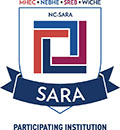Student Accessibility and Support
Counseling Services: Call (405) 682-7520 for appointments
7777 South May Avenue
Oklahoma City, OK 73159
Attention Deficit/ Hyperactivity Disorder (ADD/ADHD) Documentation Guidelines:
Note: Guidelines are to assist the Student Accessibility and Support in collaborating with each student to determine appropriate accommodations. Documentation serves as a foundation for appropriate accommodations. The Student Accessibility and Support reserves the right to deny services or accommodations while receipt of appropriate documentation is pending. A student's Individualized Educational Plan (IEP) alone is not sufficient documentation.
- Must be completed by a qualified professional (Qualified professionals include: psychiatrists, licensed clinical or educational psychologist, neurologist, qualified developmental pediatricians, and other relevantly trained medical doctors).
- Should be prepared on letterhead paper from diagnosing professional (Licensure information, address and phone number need to be included)
- Reasonably current: In most cases, this means within the past three years. To support the need for reasonable and appropriate accommodation for ADHD, the student requesting services must provide documentation verifying the condition and describing its current functional impact.
- Diagnosis and Relevant Tests must be Comprehensive
- DSM-IV Diagnosis - A Clear statement of ADD or ADHD as a DSM-IV diagnosis and a description of supporting present symptoms. The diagnostician should use direct language in the diagnosis, avoiding the use of terms such as "suggests", "is indicative of," or attention problems."
- Psycho-educational or Neuropsychological Assessment - These assessments should include measurements of aptitude, achievement, information processing as well as measures that specifically assess the impact of ADHD. Examples of appropriate testing are: WAIS-III; Woodcock-Johnson-III Achievement Test; Conners AD/HD Rating Scale; Copeland Symptom Checklist for Adult ADD.
- History: Typically a clinical history will include information from a variety of sources, not necessarily limited to the following:
- History of ADHD of symptoms by age of seven including evidence of on-going impulsive/hyperactive or inattentive behavior that has significantly impaired functioning over time. Family history for presence of ADHD.
- Relevant medical and medication history that would rule out other medical conditions that exhibit these symptoms.
- Relevant psychological and educational history and any relevant interventions.
- Interpretative Diagnostic Summary:
- Description of current functional limitations pertaining to an educational setting that are presumably a direct result of problems with attention.
- Any supplemental assessment or evaluations conducted to establish or rule out other concomitant conditions such as LD (Learning Disability), dyslexia, or psychological impairment.
- An explanation of how possible alternative diagnosis, such as mood disorders, schizophrenia, substance abuse, anxiety disorders and other possible conditions were explored and ruled out. Assessment of differential diagnoses should be documented, and any co-morbid disabilities identified.
- Description of medication prescribed and how it affects the student's academic performance.
- Recommendations for reasonable accommodations in the academic setting.









